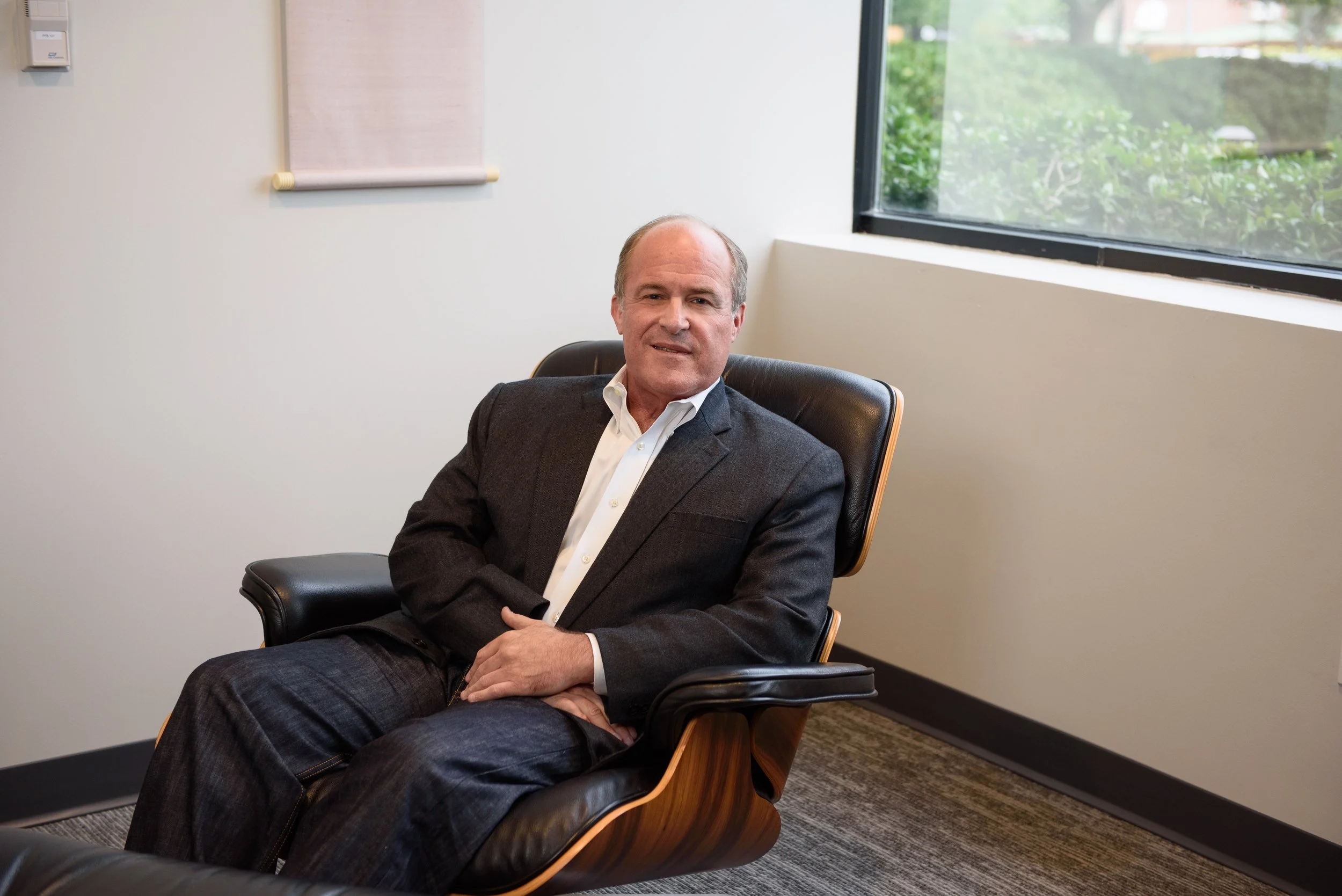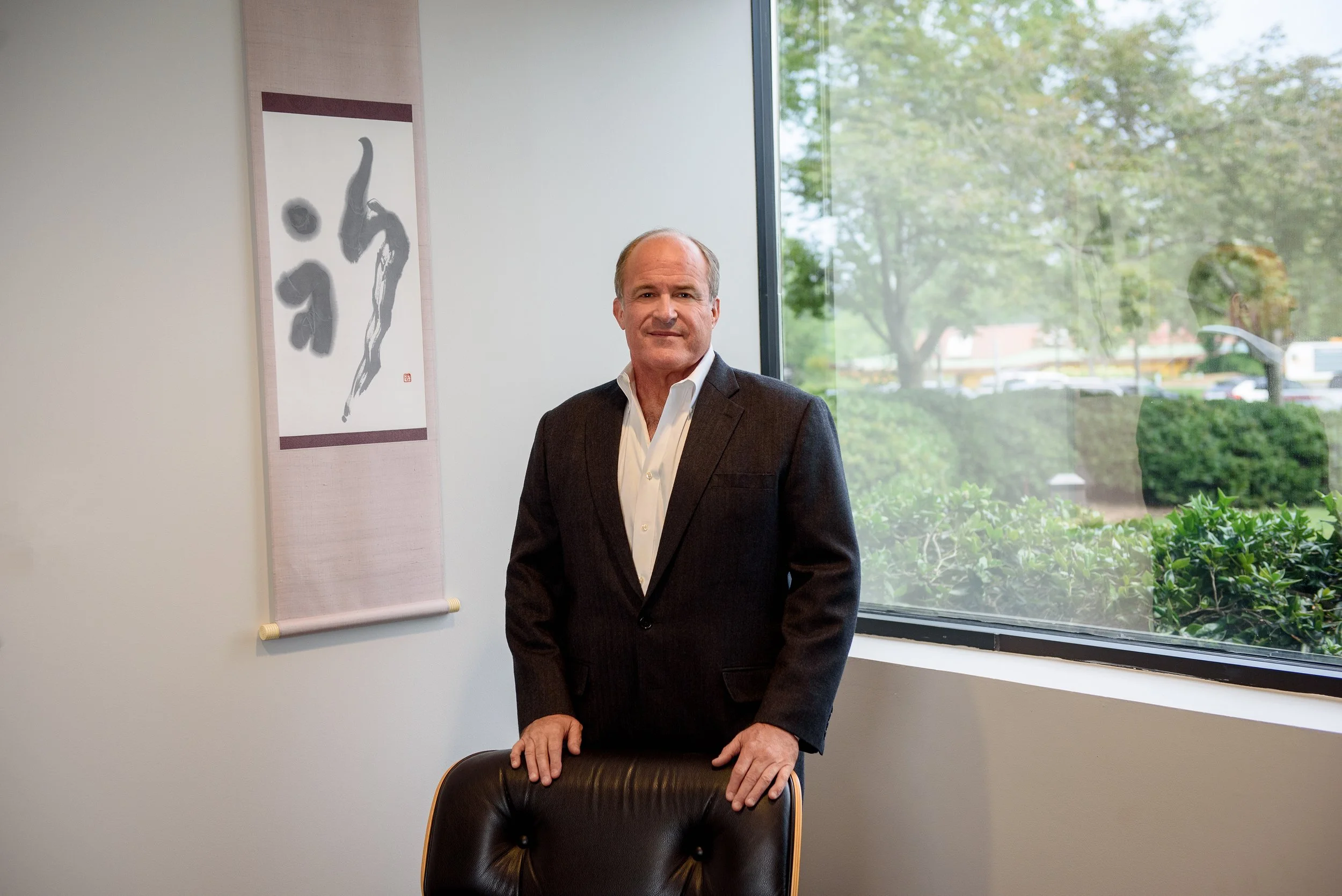
How I practice psychology:
I believe the responsibility for results is shared between psychologist and client. I don’t treat you like a patient, and you don’t have to call me “doctor.” This is a partnership – we work together.
I don’t endorse passivity in psychology. If you ask me what I think, I won’t duck or flip the script – I will call it as I see it. What you see is what you get with me.
You are not just a diagnosis, and you deserve more than just a treatment protocol.
When I look at psychology websites, I often see a laundry list of disorders and the specific therapies used to treat them.
If only it were that simple.
Matching a disorder to a canned treatment protocol has its limits.
People are more complicated than that.
As a licensed psychologist, I can (and often must) provide a diagnosis, but I don't offer any specific “brand” of therapy. I have extensive training in a variety of modalities, but there’s no “one size fits all“ approach to the human mind.
I want to understand what motivates you, what you care about, what’s working well, what’s not, and what you want to change.
Except for severe clinical cases better served by psychiatry, often depression and anxiety are symptoms of something bigger.
Sometimes it's situational, and sometimes it's emotional – either way, the feelings are real. But treating feelings without understanding the root cause is like giving painkillers for a fracture without setting the bone.
If we can identify the source, we can treat more than the symptom and mobilize your internal resources to solve the underlying problem.
We’ll identify the key issues in your life, explore options, and weigh pros and cons. You’ll know what you’re willing (or not willing) to accept, make clear decisions, and take decisive action. We may look at old patterns, but more often than not, we’ll navigate challenges in the “here and now.”
I always strive to earn my keep.
I’m acutely aware that you are paying real money for a service designed to help you with your life. As a psychologist, I have a moral and ethical responsibility to tell you whether or not I think I can help you.
Therapy shouldn’t last forever.
I’ll regularly check in with you to see if we’re on target. We’ll decide together how often you need to come and when you are done.
I believe psychotherapy should have a distinct beginning, middle, and end.
It’s not uncommon for me to work intensely with you upfront and then switch to an as-needed basis as you implement your desired changes. Some clients choose to see me every week, but often, it’s bursts of activity to gain clarity, followed by periods of integration and checking back in.
I do see clients long-term, but if we’re working on the same issue for years and years, then I am not serving you well.
I keep it real.
My approach isn't theoretical or academic. My clinical judgment is tempered by real-world experience,
I have raised two children to adulthood with plenty of bumps along the way. I have been married and divorced. I have had a non-linear career path. I’ve worked in the “real world” and navigated the complexities of money and power.
My clients often say I get where they are coming from. Where appropriate, I’m willing to share my personal experience if it is useful.
Who I best help.
I see adults, couples, families, and older teens. I have extensive experience with executive psychology, career psychology, and the psychology of men. I work well with couples in high-conflict relationships and those deciding whether to stay together or separate.
Contact me for a free 15-minute phone consultation to see if we’re a good fit.
My journey as a psychologist:
I saw a psychoanalyst for four years in my twenties. The process was excruciatingly slow, with sessions held multiple times per week at inconvenient times and far from the office. My analyst said very little, and I was supposed to “process” my issues slowly over time.
I was a driven Wall Streeter in the go-go ’80s, deal-oriented and bottom-line focused. And I also longed for personal growth.
The therapy helped, but why did I receive so little input from my analyst? What was the benefit of chipping away at myself for such a long time?
Despite the pace, I was fascinated and pivoted to psychology from business. I decided to learn all I could about the mind, the unconscious, and the things that drive us. I went back to school and explored other therapy modalities.
The pace was still painfully slow, but I stuck with it. Two Masters’ degrees and a Ph.D. later, I felt like a fighter plane chained to the deck of an aircraft carrier, throttles wide open and afterburners on full.
Psychology grad school was even slower than therapy.
Huge value was placed on being non-directive. I was taught about “unconditional positive regard,” which meant listening and viewing people in a positive light. I was told to say: “tell me more,” “I hear you saying…” and “how does that make you feel?”.
The combination of genuine acceptance and active listening was supposed to be the cure-all. I complied when I had to but chafed with the passivity, always wanting to cut to the chase.
My supervisors pushed me to slow down. “Don’t make connections for people. Let them get there themselves. Work at the client’s pace.” I couldn’t help but notice that therapists who were getting paid by the hour were rarely motivated to deliver rapid results.
I did have two mentors who thought differently. One was an old-school prof who had survived pancreatic cancer. His motto was “unconditional positive regard is for plants.” He expected me to be deeply invested in the outcome, engage fully, be an active participant, and drive for results.
The other was the son of a steel worker, a young no-B.S. psychologist who trained me when I worked at a hospital psychiatric ward. He taught me to assess situations rapidly, make clear recommendations, and intervene quickly and effectively with patients.
This was the only time during my training I was rewarded for having conviction and taking decisive action.
Then one day, a door opened that let me work differently. During my Psychology internship at UCSD, a friend referred me to a young partner at Keilty Goldsmith & Company. This boutique leadership consulting firm pioneered the field of executive coaching and created what is now known as 360 feedback. I served world-class clients like McKinsey & Company, Goldman Sachs, and many Fortune 100 companies.
In two weeks, I went from psychotherapy sessions with college students to working with Goldman bankers, McKinsey consultants, and Fortune 100 executives. It was like being shot out of a cannon. For the next several years, I flew all over the world and did thousands of counseling sessions with VPs, Engagement Managers, Partners, and corporate leaders.
It was everything I loved about psychology, happening at a lightning pace.
These clients wanted hard-hitting advice to make them better. There was a tremendous value placed on rapid insight and practical, actionable input. And if you knew your stuff and had the courage of your convictions, you could have a massive impact on people’s lives.
This shaped how I think about helping people and guided how I practice psychology today.
Want to book a 15-minute psychology consult?


